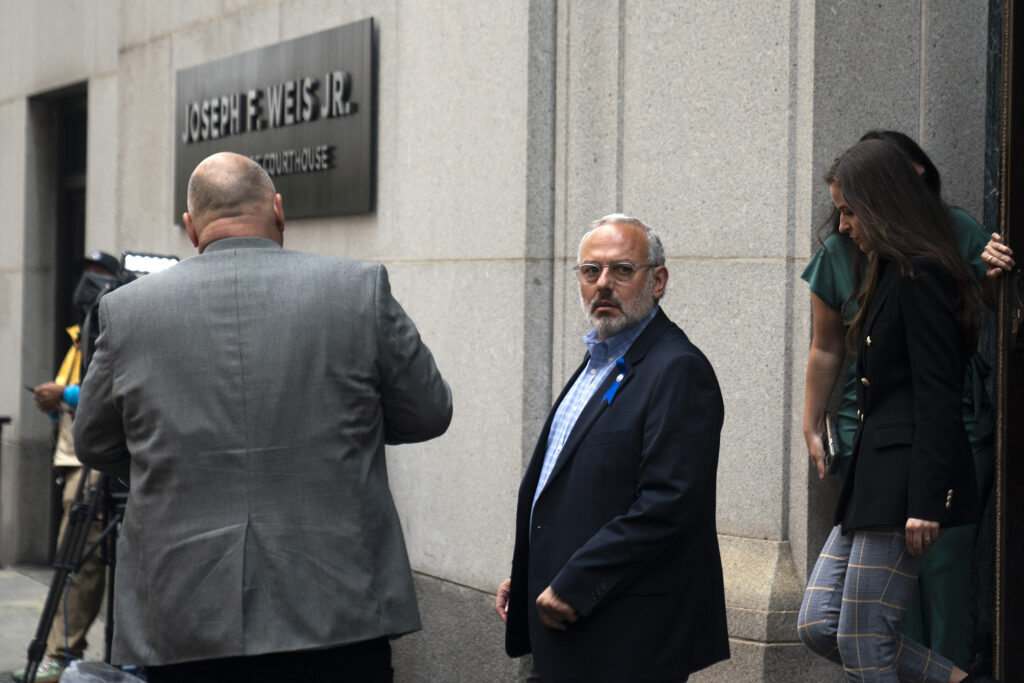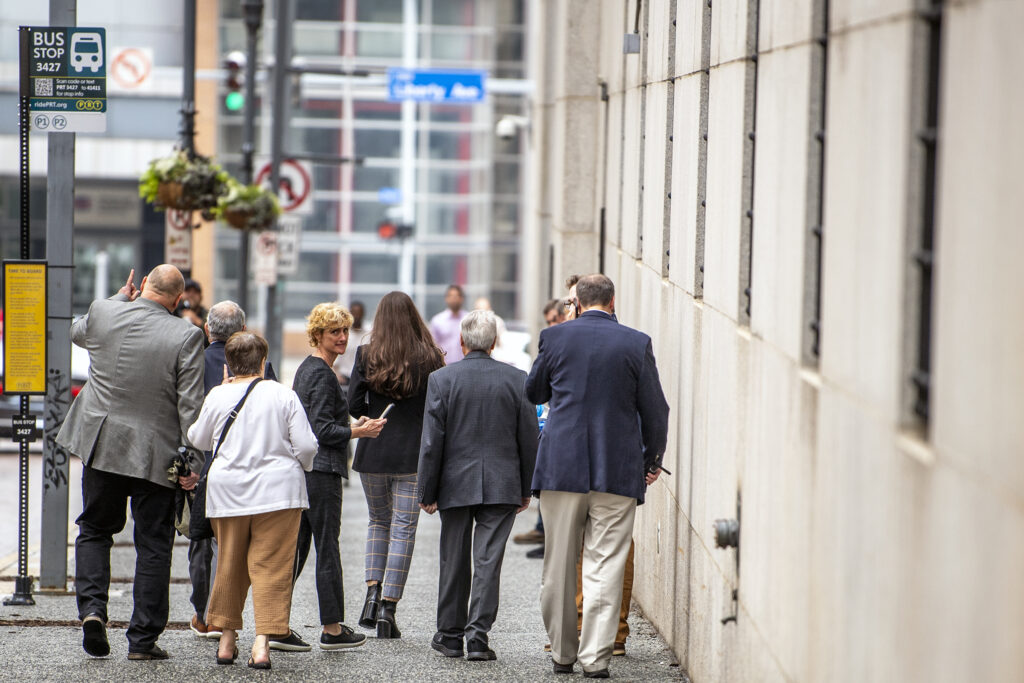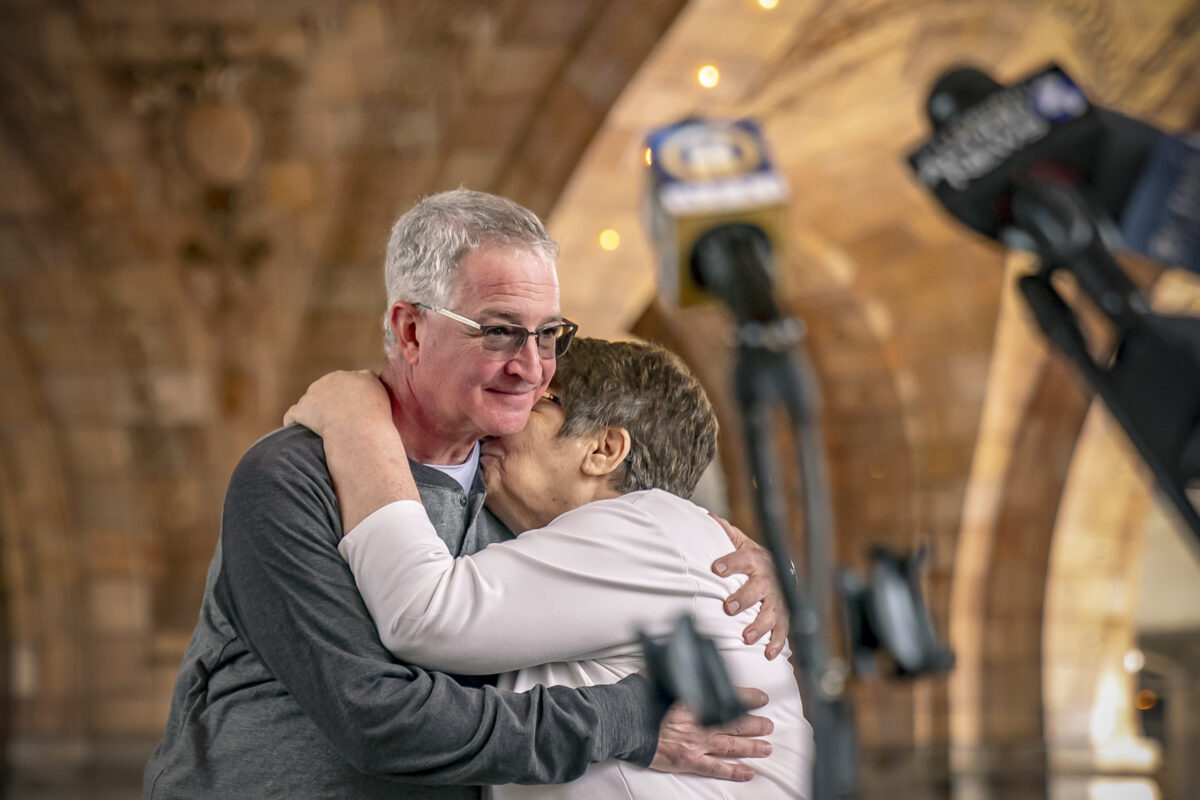More than 4½ years after the Pittsburgh synagogue massacre that left 11 worshippers at the Tree of Life building dead, a jury found Robert Bowers guilty of all 63 charges filed against him.
With the conclusion of the guilt phase of the trial, the jury will now consider whether he is eligible for the death penalty.
At approximately noon on Friday, U.S. District Court Judge Robert Colville read the 63 separate federal counts against the defendant and the jury’s verdict. Bowers sat quietly, facing forward and showing no emotion as he was found guilty on all charges, including 11 counts of obstruction of the free exercise of religious beliefs resulting in death, which carries the death penalty as a possible sentence.
The defense team asked the jurors to be polled when the judge completed reading the results, and all stated that they agreed with the verdicts as they were read.
Colville thanked the jury for its work before asking both legal teams if there were any discussions that needed to take place in the open court room.
The defense team asked the judge to verify the time of the verdict, because certain procedures are timed to when the verdict was read. For example, the defense has 24 hours from the time the verdict is read to invoke a mental health defense in the second phase of the trial.
After a trial that lasted 13 days and often featured heart-rending testimony, audio recordings and photos, the jury deliberated for about five hours before returning its unanimous guilty verdict.

Only one clarifying question was asked by the jury during deliberations, regarding charges 40-47 and the intent to kill the eight survivors who were in the building at the time of the attack but not physically injured: Carol Black, Joseph Charny, Martin Gaynor, Audrey Glickman, Rabbi Jeffrey Myers, Rabbi Jonathan Perlman, Stephen Weiss and Barry Werber. The jury inquired if the shooter had to have known or seen each person who was in the building to satisfy the requirement that he had the intent to kill them.
Colville debated the matter with the defense team, asking: If a person planted a bomb in a random car, would that show intent to kill? The defense argued it would not show intent to kill a specific person.
After deliberation, Colville responded that he could not answer the question for the jury, and instead, referred them to page 55 of his original instructions.
Bowers’ legal team offered little in the way of a defense during the trial, focusing its opening statement and closing argument on trying to distance him from the obstruction of religion charges — the charges that carry the possibility of the death penalty. Despite not convincing the jury of that argument during the guilt phase of the trial, the defense team almost certainly will continue to make that case in the penalty phase, as well as present what they believe to be other mitigating circumstances that would prevent the federal death penalty from being imposed.
In her closing statement, defense attorney Elisa Long called the massacre “a senseless act,” but argued that Bowers’ targeting of the victims because of Congregation Dor Hadash’s support of HIAS, a Jewish immigrant support organization, wasn’t an obstruction of the free exercise of religion.
“This definition doesn’t include good works or conduct,” Long said.
The jury disagreed.
Joyce Fienberg, Richard Gottfried, Rose Mallinger, Jerry Rabinowitz, Cecil Rosenthal, David Rosenthal, Bernice Simon, Sylvan Simon, Daniel Stein, Melvin Wax and Irving Younger were murdered by the defendant on Shabbat, Oct. 27, 2018, as they readied for worship services at Congregation Dor Hadash, New Light Congregation and Tree of Life *Or L’Simcha.
The next phase of the trial is scheduled to begin Monday, June 26. It is expected to last six weeks.
Related story: “There has to be a record”: The community reacts to the synagogue shooter’s guilty verdict
Related story: Resources are available to ease trauma during synagogue shooting trial.
This story is part of ongoing coverage of the Pittsburgh synagogue shooting trial by the Pittsburgh Jewish Chronicle and the Pittsburgh Union Progress in a collaboration supported by funding from the Pittsburgh Media Partnership.




